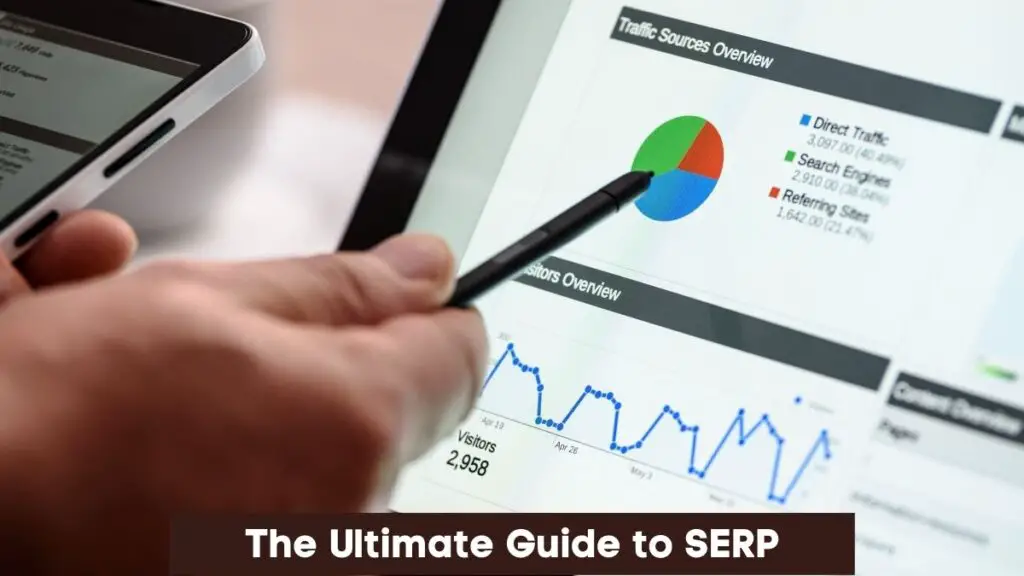Search Engine Results Pages (SERPs) are the pages displayed by search engines, such as Google when a user enters a query. SERPs provide a list of relevant websites that match the query and rank them according to the search engine’s algorithm. If you’re running a website, it’s essential to understand how SERPs work and how to improve your search engine rankings.
In this ultimate guide to SERP, we’ll go over the basics of how search engines rank websites, and how you can improve your website’s visibility and rank on the SERPs.
What is SERP? The Ultimate Guide to SERP
A SERP is a page that appears after a user enters a query into a search engine. The page typically displays a list of websites that match the query, along with other relevant information such as images, videos, and news articles.
The websites that appear on the first page of the SERP are considered to be the most relevant and authoritative for the query, and they receive the most traffic. As a result, appearing on the first page of the SERP is crucial for businesses and website owners looking to drive traffic to their sites.
How do search engines rank websites on SERP?
Search engines use complex algorithms to determine which websites should appear on the SERP for a given query. The algorithms take into account hundreds of ranking factors, including:
- Relevance: The content of the website must be relevant to the query.
- Authority: The website must be considered an authoritative source on the topic.
- Content quality: The content must be well-written and provide value to the user.
- User experience: The website must provide a positive user experience, including fast load times and a mobile-friendly design.
- Backlinks: The number and quality of links pointing to the website are significant factors in the ranking.
These are just a few of the many factors that search engines consider when ranking websites on the SERP. While the exact algorithms used by search engines are proprietary, there are best practices and techniques that website owners can use to improve their search engine rankings.
How to improve your search engine rankings
Here are some tips and best practices for improving your website’s search engine rankings:
- Focus on keyword research
Keyword research is the process of finding keywords and phrases that people use to search for content related to your business. By targeting these keywords in your content, you can improve your chances of appearing on the SERP when people search for those terms.
To conduct keyword research, start by brainstorming a list of relevant keywords and phrases related to your business. Then, use tools such as Google’s Keyword Planner or Moz’s Keyword Explorer to see how many people are searching for those terms and what the competition looks like.
- Create high-quality, relevant content
Once you’ve conducted keyword research, it’s time to create high-quality, relevant content that targets those keywords. Your content should provide value to the user and answer their questions, while also incorporating the keywords in a natural way.
In addition to text-based content, consider adding images and videos to your site to make it more visually appealing and engaging.
- Optimize your website for search engines
Search engine optimization (SEO) is the process of improving the visibility of your website in the search engine results pages. There are many different techniques for optimizing your website for search engines, including:
- Titles and descriptions: Make sure that your website’s titles and descriptions accurately describe the content on the page and include your target keywords.
- Header tags: Use header tags (H1, H2, H3, etc.) to structure your content and make it easier for search engines to understand the hierarchy of your information.
- URL structure: Use descriptive, keyword-rich URLs for each page on your site.
- Internal linking: Link to other pages on your site from within your content to help search engines understand the relationships between your pages.
- Image optimization: Optimize your images by using descriptive filenames and alt tags that include your target keywords.
- Build high-quality backlinks
Backlinks are links from other websites that point to your site. They play a crucial role in search engine ranking algorithms, as they indicate to search engines that other websites consider your content to be valuable and relevant.
To build high-quality backlinks, focus on creating great content that other websites will want to link to. You can also reach out to other websites in your niche and ask for a link, or participate in online communities and forums related to your niche.
- Track your results and make adjustments
Finally, it’s essential to track your results and make adjustments as needed. Use tools such as Google Analytics to track your website’s traffic and see how your search engine rankings are improving over time.
If you’re not seeing the results you want, don’t be afraid to make adjustments to your strategy. Keep experimenting and testing until you find the tactics that work best for your website.
Conclusion
SERP is a critical factor for businesses and website owners looking to drive traffic to their sites. By understanding how search engines rank websites and using the tips and best practices outlined in this ultimate guide to SERP, you can improve your website’s visibility and ranking on the SERP and drive more traffic to your site.
By focusing on keyword research, creating high-quality, relevant content, optimizing your website for search engines, building high-quality backlinks, and tracking your results, you’ll be well on your way to improving your search engine rankings and driving more traffic to your site.

